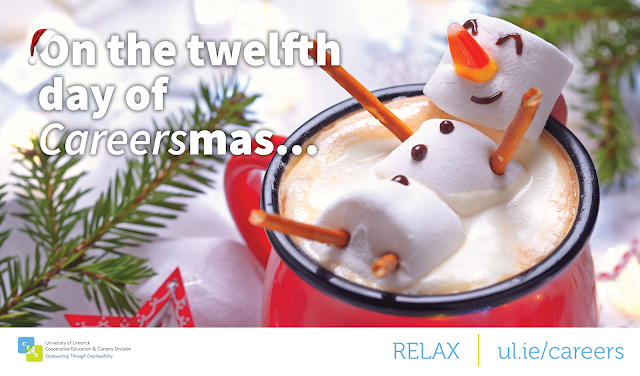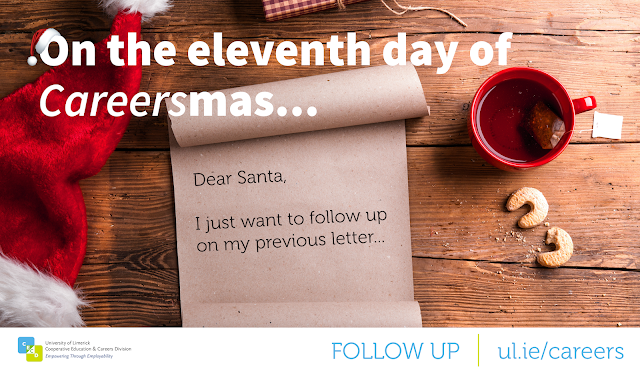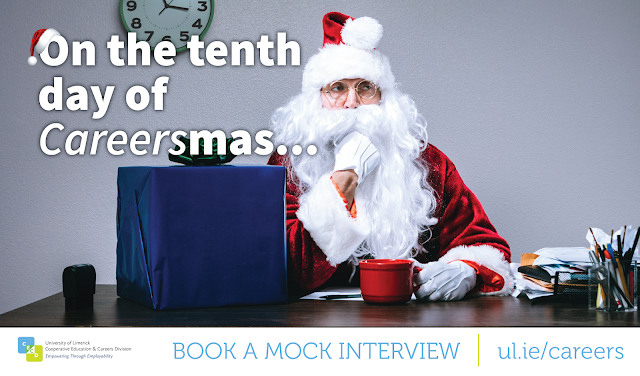Day 12 Careersmas

DAY 12 Careers Tip Cod e: Mulled Wine To win a selection box - be the first person to DM the code to @ulcareersservice on Instagram. Welcome to our final post on the 12 th Day of Careersmas! It got a great reaction so thank you for joining us each day. We wish you a Happy Christmas and will see you in 2019. Here is a summary of the topics we shared each day of Careersmas all in one spot. Day 1 Start with you - You need to start the career journey by understand self - What Type Are You Day 2 More you - Instead of focusing on what you don’t have, focus on your Know Your Strengths Day 3 Understanding what the market needs – How to Research Your Target Market Day 4 Your professional identity is a lot more than you think... Understand Your Personal Brand Day 5 Average time spent by the recruiter on your CV before deciding yes, no or maybe?...



